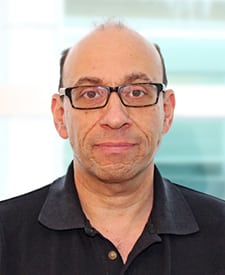Professor, Dept. of Psychiatry and School of Occupational Therapy, Dalhousie University
Clinical Director, Nova Scotia Operational Stress Injury Clinic, Nova Scotia Health Authority
Clinical Director, Nova Scotia Operational Stress Injury Clinic, Nova Scotia Health Authority

Dr. Abraham (Rami) Rudnick is a certified psychiatrist and a PhD-trained philosopher. He is a Professor in the Department of Psychiatry and the School of Occupational Therapy at Dalhousie University in Halifax, Nova Scotia, Canada, as well as adjunct- and cross-appointed at other faculties and at other universities in Canada. He is also the Clinical Director of the Nova Scotia Operational Stress Injury Clinic in Dartmouth, Nova Scotia, Canada, and the Medical Humanities Coordinator of the Department of Psychiatry at Dalhousie University. He is a Canadian Certified Physician Executive, a Certified Psychiatric Rehabilitation Practitioner and a Certified Psychosocial Rehabilitation Recovery Practitioner. He is the Editor-in-Chief of the International Journal of Mental Health, an Associate Editor of the International Journal of Extreme Automation and Connectivity in Healthcare, and a Senior Editor of the Canadian Journal of Community Mental Health, as well as the founder of the Canadian Unit of the International Network of a UNESCO Chair in Bioethics. He is member of the Board of Directors of Research Canada, a recipient of the pioneer award in recovery research granted by Psychosocial Rehabilitation (PSR) / Réadaptation Psychosociale (RPS) Canada, a recipient of the Michael Smith award granted by the Schizophrenia Society of Canada, a Fellow of the Canadian Psychiatric Association, and a Distinguished Fellow and Gold Medalist of the European Society for Person Centered Healthcare. His clinical academic and administrative expertise includes post-traumatic stress, psychosocial/psychiatric rehabilitation, digital mental health services, social determinants of health, philosophy of health, bioethics and medical and inter-professional health care leadership. His research involves mixed (quantitative and qualitative) methods as well as conceptual
and normative analysis.
and normative analysis.
